Why Knowledge is Greater Than Talent or Skill
The next time you are not happy with the results that you achieve on a job, educate yourself on the how and the why.
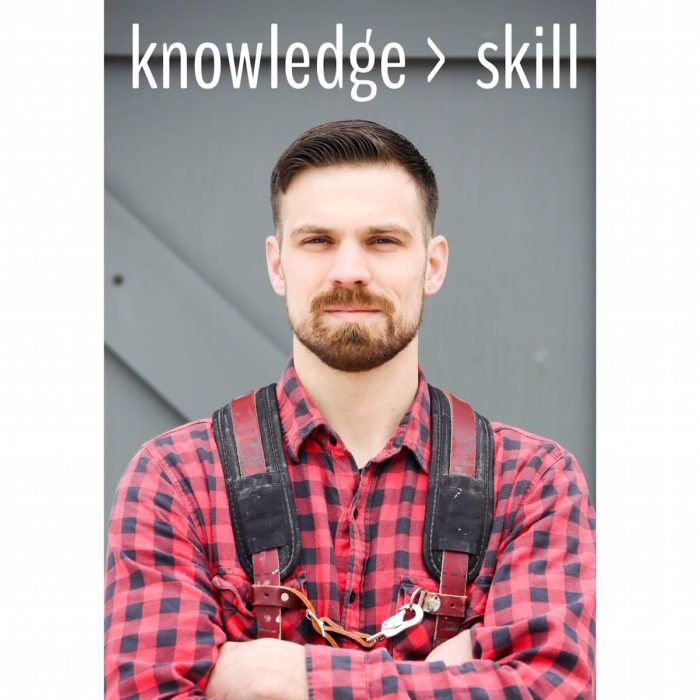
I would like to preface this post by saying that this is not a technical post. There are no photos, no “how-to’s,” and no secret techniques involved. Please do not let that dissuade you from proceeding with this article. I also would like to say that I do not have all the answers, and I am far from perfect. I simply do my best on each and every job, I never settle for mediocrity, and I refuse to stop learning. I urge you to do the same.
Everyone is familiar with the quote, “knowledge is power.” These few words resonate so clearly with me in respect to my daily undertakings. They can be applied to construction and the trades just as easily as they can be applied to business or science. So many people ask me on a daily basis how I learned to do what I do, or how I came up with a specific technique, or how they can get started in the business. The secret is, there are no secrets.
So many individuals are solely concerned with the application and the technical side of what we do. They want to know how I go about making something look the way it does, how I maintain such clean lines, how I get my miters so tight, how I achieve the finishes I do, how I go about planning my jobs, etc. The truth is that I have achieved the level of detail and quality that I have by first and foremost arming myself with knowledge.
No one was ever there to teach me how to do anything. I learned a lot of bad habits early on working for other people. I knew that I wanted to do things the right way, but had no idea how to get from point A to point B. This is when I began researching, reading, studying photos, and analyzing every detail of every job and every home that I set foot in. I never started a job without having a complete understanding of what went into it. From top to bottom, I would educate myself on the process, the materials, the historical relevance, and lastly the application.
I may not be the best carpenter in the world, I may not have the strongest technical skills, I may not be the smartest tradesman around, but I pride myself on how much knowledge I possess. Even if I never step foot on a roof or side a house, I know what goes into it. I understand how it needs to be properly flashed, how water works, how ice works, and the order of operations that needs to be employed to make for a long lasting product. Armed with this knowledge (and lack of technical skill), I can ensure that my jobs are done correctly.
So my advice to anyone who asks me how I get the results I do, is to start by focusing on the knowledge, not the physical motions. If you understand why something works and why the design is functional / aesthetically pleasing, the construction is the easy part. If you comprehend how a finish chemically and physically reacts with different materials, tools, and environmental conditions, then the finishing is the easy part. If you grasp how water works in a wet area such as a shower, and how the drain integrates into the watertight envelope, then the actual waterproofing is simple. If you are aware of how mouldings and millwork historically were designed, proportioned, and laid out, then installing them is a no-brainer.
So the next time you are not happy with the results that you achieved on a job, I challenge you to educate yourself on how and why the system/products/materials you are using were designed and developed. Having a comprehensive understanding of these details is far more important than starting with the talent or technical skill. That end of things will come, but just like building a house, you need to start with a strong and solid foundation. Buy some books, read some articles, ask some questions because “knowledge is power.”
Fine Homebuilding Recommended Products
Fine Homebuilding receives a commission for items purchased through links on this site, including Amazon Associates and other affiliate advertising programs.
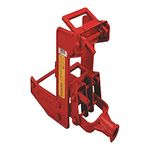
Portable Wall Jack
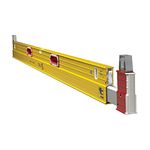
Stabila Extendable Plate to Plate Level
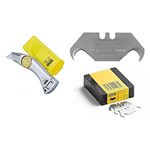
Hook Blade Roofing Knife
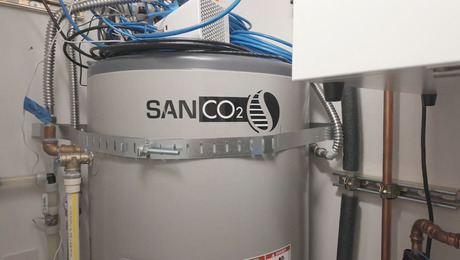
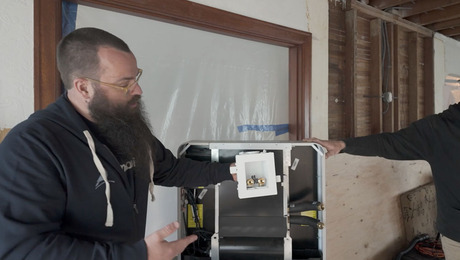
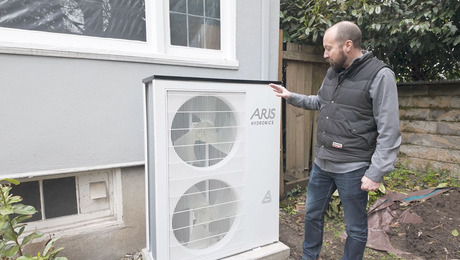
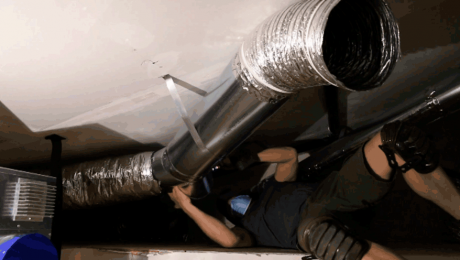
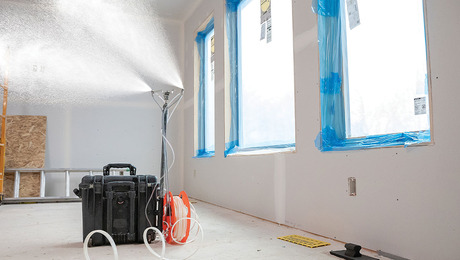


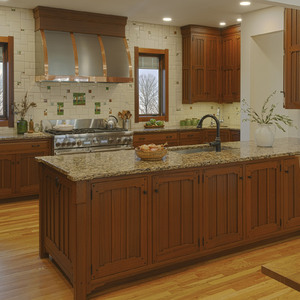











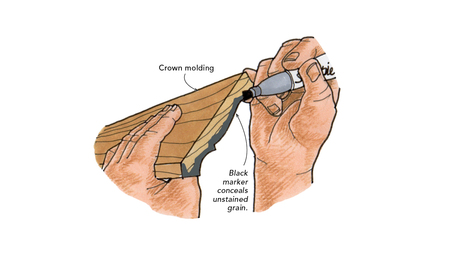




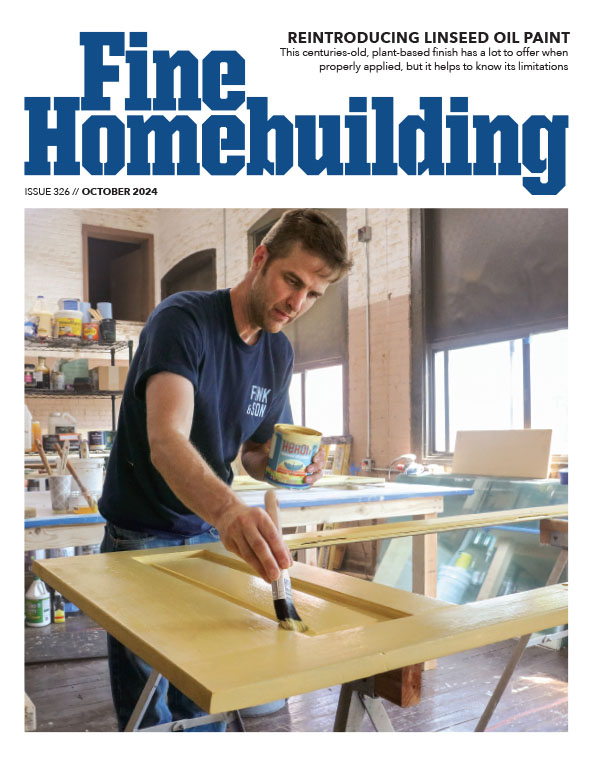





View Comments
Couldn't agree more.
Very well put Tyler.
Great article Tyler. Keep up the amazing work love the details!
I was reading an article on music the other day and came across this line.
"Bach became an absolute master of his art by never ceasing to be a student of it."
For me, constant learning is important for a couple of reasons. It keeps my mind young even while my body struggles to keep up and it keeps my work interesting because there's always something new to learn.
Knowledge without skill is useless. It's also hard to acquire skill without knowledge and talent. To be able to find and acquire knowledge is also a skill or talent. So it is a bit of a chicken or egg question with as an answer intelligence?
On point...Agreed!
Interesting, but I believe that 'understanding' trumps the idea of knowledge towards building (or increasing) skills and talents. If you understand something well enough, you'll come to understand the nature of the topic, thing, material, matter, etc. instead of just knowing about it. Semantics aside, understanding something allow you the ability to manipulate it or the variables directly related to it. For example, I know that 24-tooth saw blade will cut through both framing lumber as well as 3/4" cabinet boards. However, if I 'understand' how the saw blade cuts through lumber, I know I can save time by reducing tearout using a blade with 80 teeth and then place the finished side face down on a table saw and face up using a circular saw. So 'knowing' how to use a saw is one thing, but understanding how it works / cuts allows me to manipulate the efficacy of the tool.
I understand the gist of your article, but still I believe in teaching towards understanding how things work rather than base knowledge that they work. Of course, I'm not trying to turn new DIYers into engineers or anything but then again why not, right? It's about the synergy between understanding how something works and how to make it work that facilitates skills and talents.
Interestingly, you used the phrases "complete understanding" and "comprehension of how...," which denote understanding over base knowledge. I completely agree with you on researching, reading, and viewing photos to gain a meaningful understanding of a project before proceeding; this is very, very good advice and it expands ones knowledge about woodworking through ancillary learning. For example, researching how water intrusion works provides one with a much better understanding of how to frame window openings and seal them much better, possibly with less time and money knowing that window will never leak. So the person has learned about water, vapor, moisture, and how they act on a structure and this understanding can be applied to other areas of the structure.
-Derrick
The more you learn, the more questions you can ask, and the deeper you're drawn into skills that look like magic to the uninformed.
up to I saw the paycheck which had said $8845 , I have faith that my friends brother woz like actualy erning money part-time on their apple labtop. . there aunt had bean doing this 4 only 7 months and resently took care of the morgage on there mini mansion and bought themselves a Lancia . view it now....
======== http://www.centerpay70.com
I'd add one more thing...care. You have to care enough about what you do to even start searching for the knowledge or understanding. We've all seen the guys that just show up for the paycheck and couldn't care less about the job. That guy isn't even going to recognize that he did a poor job and so will never challenge himself to do better or even start to understand what it takes to do better work.
I take the Metropolis view, if you've watched that old science fiction movie. It takes the head, the hands and the heart.
Bobbomax says it best, you all are saying the same thing just with different words, "strive for perfection and what ever the end result...Is good enough" - Sydney Thompkins
I am very in agreement with your article, and as well as user-6752228, stating, "care".
As yourself, I also try to read as much as possible. There are a lot of specific things I haven't yet had an opportunity to try, but I do have a good understanding of how its done. One thing I find myself struggle with is, not being given that opportunity. In my career I have worked with so many construction managers, supervisors, designers, that only have the college credentials but not the field/ real life experience. And I see this is what a lot of companies support. the education. Yes, it is my own issue that I don't have the credentials, but I also see if trusted, I can run these jobs more accurate, on time, better estimated on times and materials?
Just saying, and I guess I vented a bit? But kudos to you and your good work.
I am a manufacturing quality engineer by trade and a DIYer out of necessity. Just one year ago I had never used a hammer for anything more than hanging a picture. Having a meticulous, detail oriented NEED to understand each step before I do it has served me extremely well. Even more than that, my natural inclination to understand the entire project, break it down into individual processes and do them in a specific order has saved me untold hours of having to undo something because I should have done something else first.
These things may seem like a no-brainer to those of you who work in this industry or have ever been exposed to building at all but to someone like me who, like I said, never even held a hammer before this year, the details that the author talks about are the difference between me fixing my home safely and to building codes vs. starring on my own house disasters show.